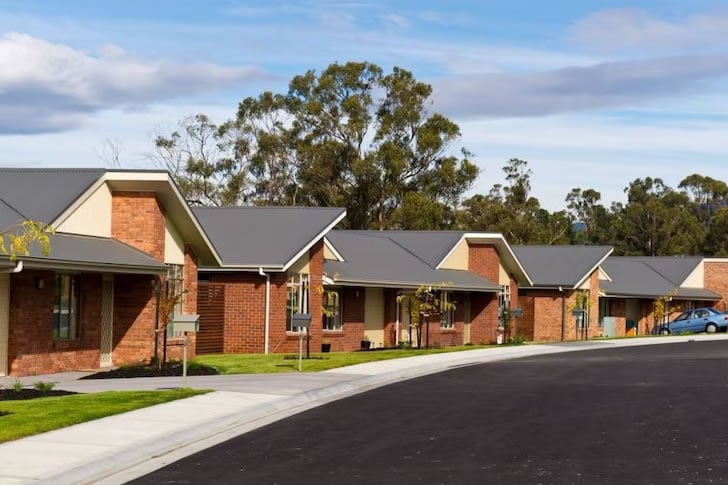Guide to Affordable Senior Housing: Tips and Advice
Finding affordable senior housing can be challenging, but with the right guidance and resources, you can find a comfortable and cost-effective living situation.

Understanding Affordable Senior Housing
Affordable senior housing is designed to meet the financial and lifestyle needs of older adults. It ensures they have a safe, comfortable, and supportive living environment without financial strain.
1. What is Affordable Senior Housing?
Affordable senior housing primarily caters to low-to-moderate-income seniors. It includes options like subsidized apartments, independent living communities, and affordable assisted living facilities. These housing solutions provide essential services, accessibility features, and community support designed to meet seniors' unique needs.
2. Eligibility Criteria
Eligibility for affordable senior housing often depends on age, income, and health status. Generally, seniors aged 62 and older qualify. Income limits are set by federal and state regulations and may vary by location. Additionally, applicants may need to demonstrate their capability to live independently, with or without support.
Finding Affordable Senior Housing
Finding the right affordable senior housing involves research and leveraging available resources. Here are some steps to guide your search:
1. Research Local Options
Begin by exploring local options. Many communities have affordable housing programs specifically aimed at seniors. Check with your local housing authority, senior centers, or the Area Agency on Aging for information on available options.
2. Utilize Online Resources
Online resources can be invaluable:
HUD.gov
: The U.S. Department of Housing and Urban Development (HUD) offers a database of affordable rental properties.Aging.gov
: Provides information on various senior housing options and resources.SeniorHousingNet.com
: A useful tool for finding senior living communities by location and price range.
3. Visit Prospective Housing
Visiting potential housing options allows you to assess the living conditions, meet current residents, and get a feel for the community. Note the cleanliness, safety features, social activities, and overall atmosphere.
4. Consider Waiting Lists
Affordable senior housing often has waitlists. Apply as early as possible and consider multiple housing options to increase your chances of securing a spot. Stay in touch with the housing providers to keep track of your application status.
Financial Assistance and Budgeting
Understanding and managing your finances is crucial to securing affordable senior housing.
1. Subsidies and Vouchers
Section 8 Housing Choice Voucher Program
: Provides rental assistance to eligible low-income seniors, reducing their rent burden.Low-Income Housing Tax Credit (LIHTC)
: Encourages the development of affordable rental housing for low-income households, including seniors.
2. State and Local Programs
Many states and local public sectors offer additional programs that provide financial assistance or tax relief to senior residents. Contact your local housing authority or state Department of Aging for more information.
3. Budgeting Tips
Assess Your Income
: Calculate all sources of income, including Social Security, pensions, and savings.Expense Management
: Track your monthly expenses, prioritize needs over wants, and look for areas to reduce costs.Financial Planning
: Consider consulting a financial advisor to help manage your finances and plan for future needs.
Enhancing Quality of Life in Affordable Senior Housing
Affordable senior housing should not only be financially accessible but also enhance the quality of life for its residents.
1. Social Engagement
Staying socially active is vital for maintaining mental and emotional well-being. Look for housing communities that offer:
- Recreational activities and clubs.
- Fitness classes tailored for seniors.
- Organized outings and social events.
2. Access to Healthcare
Ensure the housing community provides convenient access to healthcare services, such as:
- On-site healthcare providers or visiting nurses.
- Transportation services to medical appointments.
- Proximity to hospitals and clinics.
3. Safety and Accessibility
Safety and ease of access are crucial considerations:
Safety Features
: Look for emergency call systems, grab bars in bathrooms, and well-lit common areas.Mobility
: Ensure the housing includes elevators, ramps, and wide doorways to accommodate mobility aids like walkers and wheelchairs.
4. Nutritional Support
Proper nutrition is fundamental for senior health:
- Meal plans and dining options tailored to seniors' dietary needs.
- On-site dining facilities or partnerships with local meal delivery services.
- Community gardens or cooking classes promoting healthy eating habits.
Conclusion
Securing affordable senior housing requires careful planning and the utilization of available resources. By understanding your options, seeking financial assistance, and prioritizing communities that enhance quality of life, you can find a living situation that supports both your financial and personal well-being. Always remember to start your search early and consider multiple options to ensure the top possible outcome for your senior housing needs.









